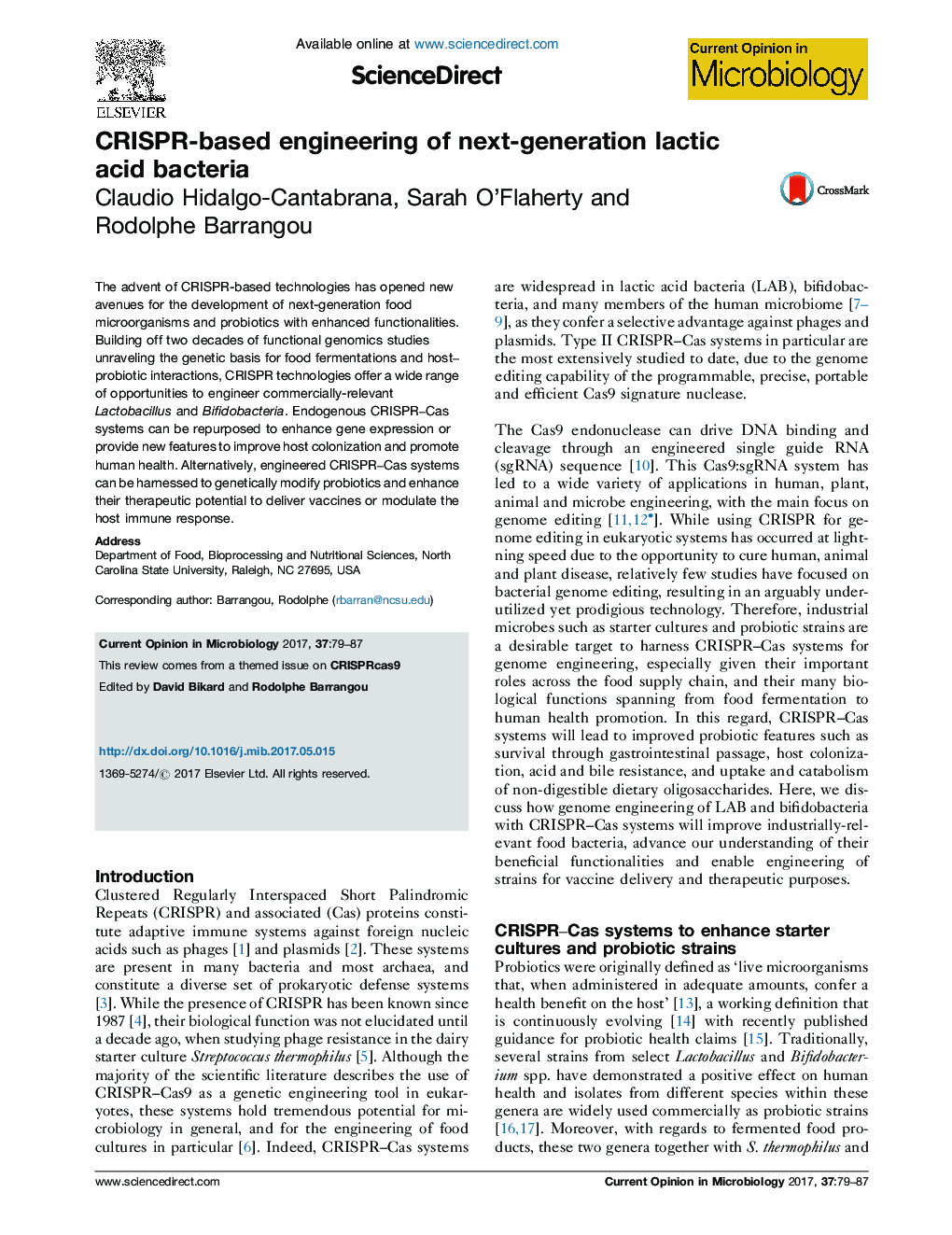| کد مقاله | کد نشریه | سال انتشار | مقاله انگلیسی | نسخه تمام متن |
|---|---|---|---|---|
| 5671726 | 1593032 | 2017 | 9 صفحه PDF | دانلود رایگان |

- CRISPR-Cas systems afford opportunities for genome editing of probiotics.
- Endogenous and engineered CRISPR-Cas systems can be repurposed to alter the genome or transcriptome.
- Cell-surface engineering can readily enable delivery of vaccines.
The advent of CRISPR-based technologies has opened new avenues for the development of next-generation food microorganisms and probiotics with enhanced functionalities. Building off two decades of functional genomics studies unraveling the genetic basis for food fermentations and host-probiotic interactions, CRISPR technologies offer a wide range of opportunities to engineer commercially-relevant Lactobacillus and Bifidobacteria. Endogenous CRISPR-Cas systems can be repurposed to enhance gene expression or provide new features to improve host colonization and promote human health. Alternatively, engineered CRISPR-Cas systems can be harnessed to genetically modify probiotics and enhance their therapeutic potential to deliver vaccines or modulate the host immune response.
Journal: Current Opinion in Microbiology - Volume 37, June 2017, Pages 79-87